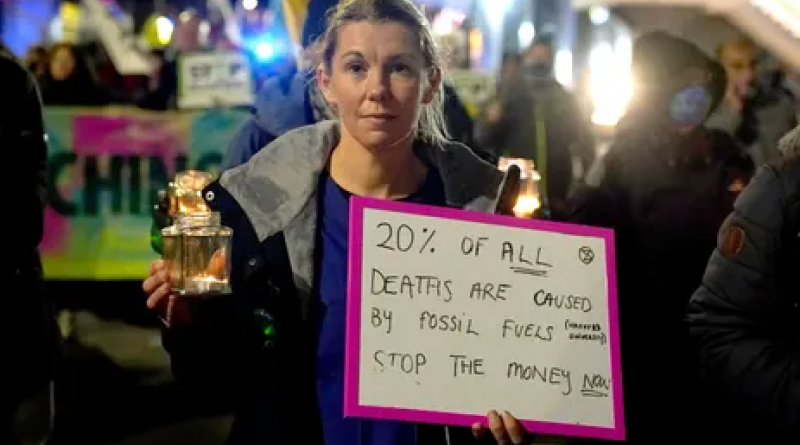Op - The Guardian view on the Cop26 draft outcome: raise the bar

The credibility of international efforts to combat the climate crisis depend on the summit’s ambitions being honoured.
In the staid idiom of international summitry, to “note with serious concern” is a statement of distress. To “express alarm” is verging on panic. Thus the draft text of a Cop26 negotiating outcome signals that the conference is not on track to match its ambitions, and recognises that failure will have calamitous consequences.
On the trajectory of existing commitments, carbon emissions are set to rise 13.7% by 2030. Dramatic movement in the opposite direction is needed if the goal is to limit global heating to 1.5C by the end of this century – the outcome counselled by the Intergovernmental Panel on Climate Change (IPCC). That requires a 45% emissions cut by 2030, and net zero by mid-century. Yet a projection by the Climate Action Tracker shows that the world is heading for a rise of 2.4C above preindustrial levels, despite high-profile carbon-cutting pledges made in Glasgow. Heating on that scale would unleash extreme weather, bringing devastation across the globe: rising sea levels, drought and displaced populations.
The draft text underscores that the goal of the 2015 Paris agreement is to hold the increase “well below” 2C and pursue efforts to limit the rise to 1.5C. It also stresses the IPCC report and advice. The transition to greener energy, if managed and financed boldly, gives those countries that embrace it an economic and social dividend as pioneers of new technology. That should appeal to national self-interest if the wider benefits of averting climate meltdown provide insufficient incentive to act. For Boris Johnson, there is the more immediate motivation of not wanting a summit in Britain to go down in history as a flop. He returned to Scotland on Wednesday ostensibly to bring heft to the negotiations, although the sortie served also as a distraction from tricky questions about Tory sleaze. His restored attention on the climate talks is welcome, even if a sustained focus would be out of character. Questions about corruption inevitably followed him into the press conference in Glasgow, where he exhorted Cop26 delegates to “keep 1.5 alive”.
Bigger players than Britain dictate the pace of action. But there is something emblematic in the prime minister’s habit of treating everything as a performance and leaving to the last minute what should have been addressed earlier. Gordon Brown, whose mixed record in office boasts as its most conspicuous success the coordination of international action during the financial crisis, is right to warn the Tory leader against treating the summit as “a day trip”.
He is right, too, to describe the draft statement as an “admission of failure”, despite the real advances on deforestation and methane emissions, for example. The glaring shortcoming is the failure to step up finance for vulnerable and poorer nations to fund clean development, protect their populations against the impacts of global heating, and compensate for the damage already being done. Without this, the 1.5C goal is unreachable. Alok Sharma, the conference’s president, said on Wednesday that he was pushing “very hard” for cash. NGOs warn that the west has not done enough to press the issue.
When the stakes are so high, frustration is justified but despair is premature and also pointless. The current intergovernmental coordination system is the only one available, so making it work is imperative. It is not unusual, in international relations, for pressures and distractions in the present to obscure moral obligations to the future. But it is also common for negotiations to bear fruit only in their final days, or even hours. Since the consequences of failure are intolerable, the hope of something better from Cop26 persists. There may still be time – just – to realise it.
10 November 2021
The Guardian




